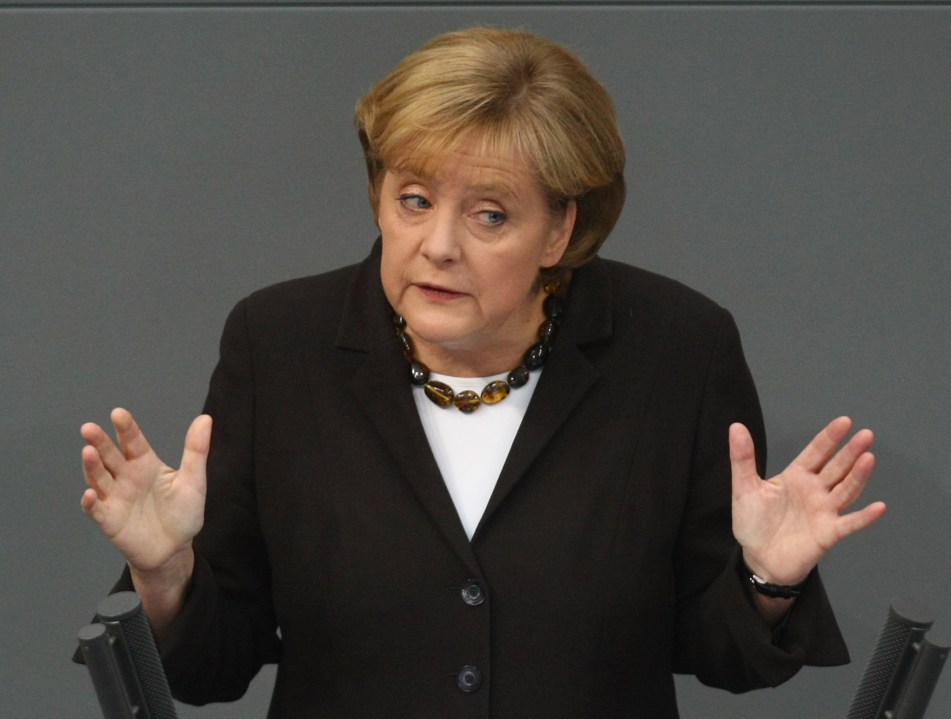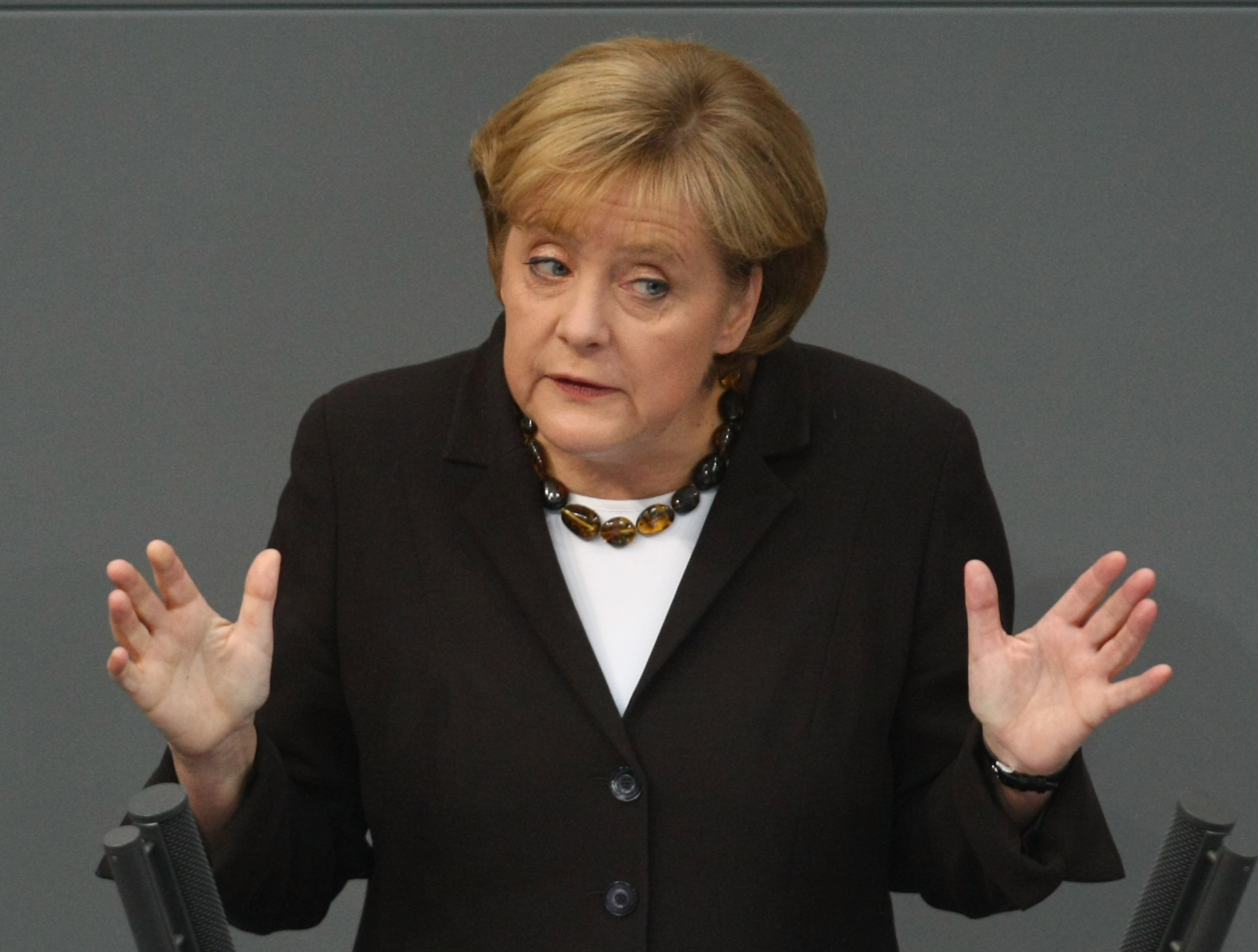 Can someone please tell Angela Merkel that the world is behind Gordon Brown in a great consensus? Because the German Chancellor seems to have forgotten. After rejecting Brown’s casino approach to public finance (borrow like mad, and encourage the public to do the same, then hail yourself as an economic genius), Germany has two things Britain woefully lacks: a balanced budget and a trade surplus.
Can someone please tell Angela Merkel that the world is behind Gordon Brown in a great consensus? Because the German Chancellor seems to have forgotten. After rejecting Brown’s casino approach to public finance (borrow like mad, and encourage the public to do the same, then hail yourself as an economic genius), Germany has two things Britain woefully lacks: a balanced budget and a trade surplus.
Germans have always been nervous about the debt-fuelled growth which Brown relied on. They recognise the danger in asset bubbles. The Bundesbank was always mindful of this, and its DNA is in the ECB which has handled this better than the Bank of England. Germany also has more reason to support a VAT cut: it still makes stuff, whereas our VAT cut will be celebrated in the streets of Guang Dong.
But, anyway, back to Merkel. The FT’s Westminster blog quotes her as saying:
“Excessively cheap money in the US was a driver of today’s crisis. I am deeply concerned about whether we are now reinforcing this trend through measures being adopted in the US and elsewhere and whether we could find ourselves in five years facing the exact same crisis.”
And Steffen Kampeter, her budget adviser, says:
“I see the danger of creating a new bubble. Massive interest rate cuts and massive borrowing may bring about new problems. How good is a policy package if it has to be changed every other week? How good is it for confidence? The latest British decisions on VAT [value added tax] and income tax, for instance, are inconsistent. Better to wait a bit longer and put forward more durable solutions.”
Merkel’s central point is that underpriced debt got us into this problem, so more of it won’t get us out. Every financial downturn is different, and too many commentators are applying the lessons of yesteryear. Two European political leaders have the intellectual self-confidence to be dubious about borrowing one’s way out of debt: Merkel and David Cameron. Let’s see who else joins in.








Comments